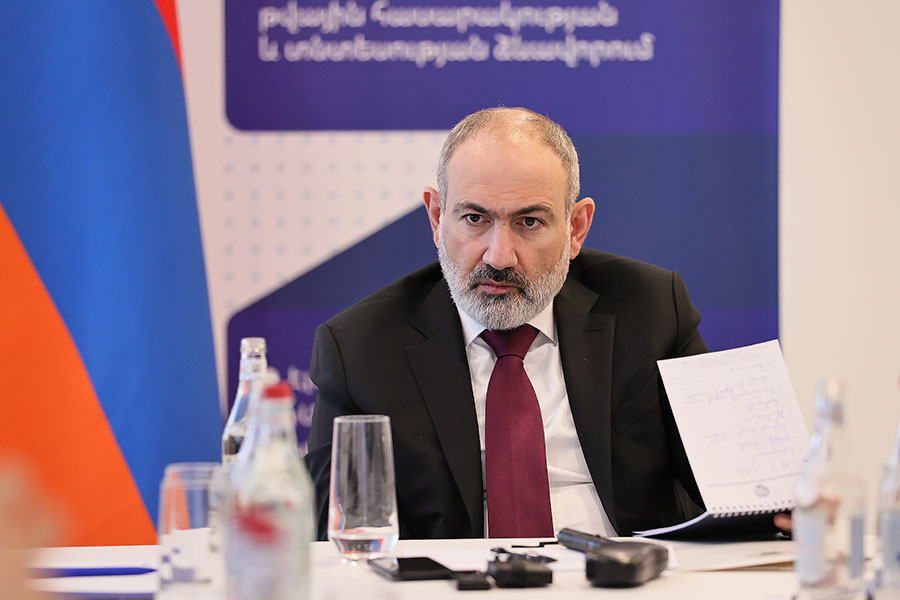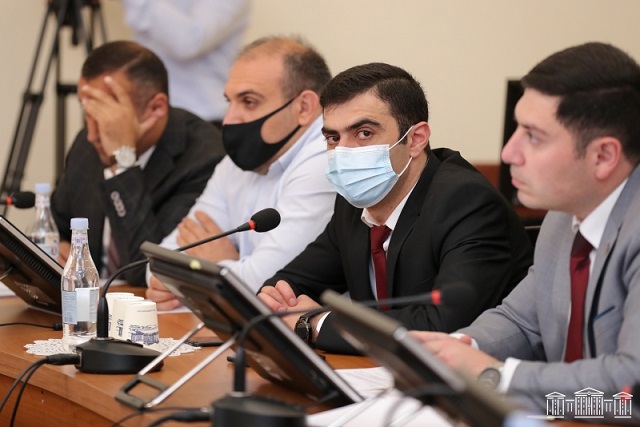Prime Minister Nikol Pashinyan visited the Information Systems Agency to participate in the discussion of the activity report 2023 of the Agency.
The director of the agency, Nerses Yeritsyan, and the representatives of the agency reported on the activities carried out within the framework of the mission of forming the digital society and economy.
It was noted that in the reporting year, by the decision of the Government, the national digital identification platform “I am” was introduced, providing a safe way for users to access digital services. In compliance with the Government’s decision, public services are now available through this single sign-on platform.
A pilot version of the National Service Platform was developed and launched by the Agency. It aims to improve the user experience of using public services by providing easy-to-understand and detailed guidance on them. Pilot programs of “Life events” are being implemented, under the logic of which the way to receive the service is redesigned from the point of view of user comfort and accessibility, rather than digitizing the services of the departments. In particular, roadmaps for digital reforms were developed together with partner departments for the events “Birth of a Child”, “Business Registration and Protection of Rights”, “Obtaining a Car and Driver’s License”. A technical description, design elements and structure are created for state websites with uniform standards.
Read also
Prime Minister Pashinyan inquired whether the National Service Platform is only about state services, or whether other services provided by the banking or private sector can also be included there. “How does it work or how do we imagine it?”
The representatives of the Agency noted that they also aim to include private services in the platform after passing some filters to ensure that reliable services will be provided.
“At the conceptual level, we do not say that only state services are on this page, there may be non-state services as well. How? We will think later and you will see, but the concept is that this platform of public services is not only for state services, or at least we are open to discuss and understand that idea,” said Nikol Pashinyan.
The process of developing data and service catalogs has started, the introduction of which will create the basis for smooth and data-based management of services, as well as for the smooth operation of the National Service Platform.
Prime Minister Pashinyan referred to the many data available in the ministries, which are on paper. “I realized that we have to do two things. There are data that are in different places. The person went and changed the passport, that data can be changed in one place, but remain the same in other places. At the same time, a person can change his passport three times during that time, and there will be one passport data somewhere, another data in the second place, and another data in the other places. Now we have two issues to solve. One is that every data should have an owner, that is, for example, passport data should be in one place – there is no other agency in the Republic that is the owner of that data and has the right to change anything there. And secondly, there are data, of course, that are already digitized, but there are data that are not digitized. How is the digitalization process being organized now,” asked Nikol Pashinyan.
Nerses Yeritsyan noted that the methodology is written, there is a legal basis for the process to become active, according to the law, all documents must be machine-readable. “That means the document is a code,” Yeritsyan said.
It was noted that the standard is also defined by that logic. “In other words, the law will define who is the owner of which data, and the data cannot have two owners, the owner of the data is one. In other words, any change, addition or update to that data will be made only and only by that owner, and this will be clearly defined by the law,” said the Prime Minister.
It was noted that under the guidance of the Ministry of Internal Affairs, the tender for issuing new generation passports and identification cards has been launched. The private sector, namely 10 banks and 3 telecom companies, joined efforts to introduce national identification and certification services in accordance with the best international standards.
It was informed that led by the Information Systems Management Council and the Ministry of High-Tech Industry, key bills institutionalizing data policy were developed and put into circulation, namely “On Cyber Security”, “On Public Information” and “On the State Register of Population”.
The best international standards of digital identification are introduced in order to create an open electronic identity ecosystem in accordance with the European eIDAS 2.0 regulation. As a result, any certified organization can offer trust and identity services in the territory of Armenia, and the government will perform its regulatory and monitoring function without competing with the private sector.
Significant progress has been made towards the creation of a national cyber security team equipped with international capabilities, with the introduction of appropriate structures and international standards.
In order to effectively deal with cyber incidents that threaten critical national infrastructures, a modern toolkit for their identification, prevention, response and protection has been formed. Programs to increase the cyber resilience of critical infrastructure in various sectors, using the existing deep expertise in cyber security have been launched.
INFORMATION AND PUBLIC RELATIONS DEPARTMENT OF THE OFFICE OF THE PRIME MINISTER OF THE REPUBLIC OF ARMENIA




























































